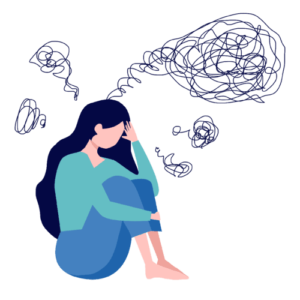
Bipolar Disorder Test
Answer these simple questions to understand more about your Bipolar Disorder. We share instant results and keep your information confidential.

What is Bipolar Disorder Test?
Bipolar disorder assessment involves a comprehensive evaluation of an individual’s mood, behavior, and mental health to determine if they exhibit symptoms consistent with bipolar disorder. Clinicians use interviews, questionnaires, and observation to assess the presence and severity of manic and depressive episodes. The assessment aims to identify patterns and duration of mood swings, the impact on daily functioning, and any co-existing conditions. Accurate assessment is crucial for a proper diagnosis and development of an appropriate treatment plan for individuals experiencing bipolar disorder.
Who can benefit from this Bipolar Disorder Test?
Anyone experiencing mood swings, significant changes in energy levels, and disruptions in daily functioning may benefit from a bipolar disorder assessment. This includes individuals who suspect they may have bipolar disorder or have a family history of the condition. Additionally, those who have been diagnosed with other mood disorders but continue to experience unresolved symptoms might also benefit from assessment. Proper evaluation can lead to an accurate diagnosis and subsequent personalized treatment, enabling individuals to manage their condition effectively and improve their overall quality of life.


Bipolar Disorder Test Accuracy
The accuracy of bipolar disorder assessment depends on several factors, including the expertise of the clinician conducting the evaluation, the comprehensiveness of the assessment tools used, and the individual’s willingness to provide honest and detailed information about their symptoms. When conducted by trained professionals using standardized diagnostic criteria, the assessment can be reasonably accurate. However, bipolar disorder can be complex, and misdiagnosis or missed diagnoses can occur. Regular reassessment and collaboration between mental health professionals can help improve overall accuracy and ensure individuals receive appropriate treatment and support.
Types of Bipolar Disorder Test
Clinical Interview:
Involves a face-to-face discussion between the clinician and the individual to gather detailed information about symptoms and experiences.
Mood Charts:
Daily recording of mood fluctuations, energy levels, and other relevant factors to identify patterns and severity of mood swings.
Diagnostic Questionnaires:
Standardized questionnaires designed to assess symptoms and help in diagnosing bipolar disorder.
Family History Test:
Evaluates family members’ history of mood disorders to understand potential genetic factors.
Psychological Testing:
Tests like cognitive tests to understand cognitive functioning and identify possible cognitive impairments related to bipolar disorder.
Functional Test:
Evaluates the impact of symptoms on an individual’s daily life and functioning to determine the level of impairment and required support.
Handling Bipolar Disorder
Handling bipolar disorder involves a combination of medical treatment, psychotherapy, lifestyle adjustments, and support from loved ones. Key strategies include:
- Medication: Taking prescribed mood stabilizers or other medications to manage manic and depressive episodes.
- Psychotherapy: Engaging in cognitive-behavioral therapy (CBT) or other forms of therapy to learn coping skills, manage stress, and regulate emotions.
- Lifestyle Changes: Maintaining a regular sleep schedule, avoiding alcohol and drugs, and adopting a balanced diet and exercise routine.
- Support System: Seeking support from family, friends, or support groups can provide understanding and encouragement.
- Recognizing Triggers: Identifying and managing triggers that can lead to mood swings.
- Crisis Plan: Developing a plan with a healthcare professional for handling potential emergencies.
- Regular Monitoring: Regularly monitoring moods and symptoms to catch any changes early on.
- Collaboration: Involving loved ones in the treatment process and encouraging open communication.
Remember, each person’s experience with bipolar disorder is unique, and treatment plans should be personalized to address individual needs. Always consult with a healthcare professional for the best approach to managing bipolar disorder.